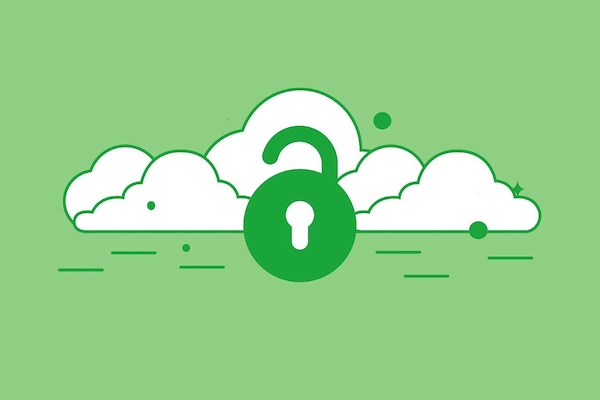How Secure Is Client Data in Cloud-Based Legal and Healthcare Services
The sensitive nature of client data in legal and healthcare services makes security a top priority. Cloud-based solutions are convenient, but how safe is your information when it's stored offsite?
Many organizations depend on cloud systems for efficiency and collaboration. Yet, with this convenience comes the risk of cyber threats and strict regulatory compliance.
From encryption to access controls, ensuring data integrity involves several layers of protection. Hold tight as we discuss how professionals safeguard confidentiality in these high-stakes industries.

Understanding Cloud Storage Security for Legal and Healthcare Industries
Cloud storage offers significant benefits for legal and healthcare organizations. However, it also introduces unique security challenges that require attention to detail.To ensure client data remains safe:
- Cloud providers must meet stringent security standards, such as SOC 2 certification and ISO/IEC 27001 compliance.
- Data must be encrypted both in transit and at rest to prevent unauthorized access.
- Access controls should adhere to a zero-trust model, granting permissions only as necessary.
Organizations must evaluate the reputation of their cloud provider before adoption. Providers with transparent policies on data handling inspire trust.
Backup procedures are crucial for protecting against accidental loss or ransomware attacks. Without proper backups, sensitive files can become unrecoverable during a breach.
Understanding these foundational principles is critical when relying on cloud systems in industries where confidentiality is paramount to trustworthiness. Secure practices begin with informed choices by decision-makers themselves.
The Role of Encryption in Protecting Sensitive Client Data
Encryption acts as the backbone of cloud security. It converts readable data into unreadable code, making unauthorized access nearly impossible without a decryption key.Effective encryption strategies include:
- End-to-end encryption to secure data during transfer and storage.
- Regularly updating cryptographic algorithms to defend against emerging threats.
- Using strong key management practices for generating, storing, and revoking keys securely.
For industries like healthcare, digital tools for practice management like CollaborateMD offer built-in encryption features that ensure compliance with strict confidentiality requirements.
Encryption should be used in conjunction with other safeguards, such as multi-factor authentication and secure networks. This combination prevents breaches from exploiting single points of failure.
With robust encryption measures in place, sensitive information remains protected from hackers even if a system becomes compromised, securing trust between organizations and their clients across every interaction or transaction they perform online.
Navigating Compliance: HIPAA, Attorney-Client Privilege, and More
Regulatory compliance is a critical factor in cloud-based services for legal and healthcare sectors. Failure to meet these standards can lead to serious consequences, including fines and loss of client trust.Key compliance considerations include:
- Healthcare providers must comply with HIPAA rules for protecting patient information.
- Law firms must maintain attorney-client privilege by utilizing secure storage and communication channels.
- Regular audits ensure systems meet evolving regulatory requirements, focusing on internal and external solutions, such as document translation software.
Selecting a cloud provider familiar with industry regulations helps mitigate the risks associated with non-compliance. Providers should offer certifications, such as GDPR alignment or adherence to federal frameworks in the U.S.
Policies such as access controls further strengthen adherence by limiting who can view sensitive data based on role-specific permissions.
Maintaining clear policies aligned with overlapping regulations protects not only the organization but also the individuals whose personal details are entrusted to their care. Compliance becomes both an ethical responsibility and a practical necessity.
Identifying Cybersecurity Risks Specific to Cloud-Based Solutions
Cloud-based systems bring efficiency but also expose organizations to unique cybersecurity risks. These vulnerabilities can jeopardize sensitive client information if left unaddressed.Common cloud-related threats include:
- Data breaches caused by weak access controls or misconfigured settings.
- Phishing attacks targeting login credentials for cloud platforms.
- Insider threats from employees with excessive permissions.
Third-party vendors, such as contractors using shared systems, may inadvertently introduce security gaps. Ensuring they follow best practices significantly reduces these risks.
Shared environments in public clouds also increase exposure to potential cross-account vulnerabilities if the provider lacks robust isolation protocols between users.
Regular monitoring of network activity detects unusual behavior early and helps contain incidents before escalating into severe breaches, preventing major disruptions within legal or healthcare operations where trust is paramount.
Wrapping Up
Safeguarding client data in cloud-based legal and healthcare services requires diligence, robust security measures, and strict adherence to regulations. Choosing reputable providers, leveraging advanced tools, and staying proactive against threats lets organizations protect sensitive information while earning and retaining trust, and ensuring their systems remain secure no matter what.Do You Need An Attorney?
If so, post a short summary of your legal needs to our site and let attorneys submit applications to fulfill those needs. No time wasted, no hassle, no confusion, no cost.

